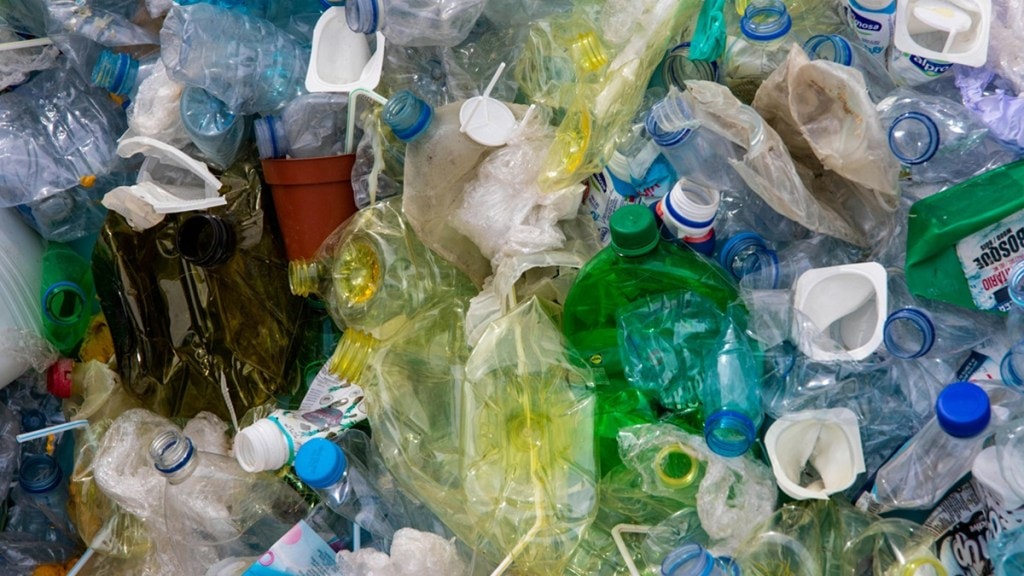The Meghalaya High Court on Friday outlawed single-use plastic at temples and retail establishments across the state. The High Court Bench led by Chief Justice S Vaidyanathan supported the use of tetra pak cartons, which are mainly made out of paper and may prove to be a useful replacement for plastics. “To begin with, such a move can be started from temple premises. Temple authorities must ensure that there is no usage of plastic bags in and around the worshipping places. CCTV cameras shall be installed in all temples, so that if anybody carries plastics inside the temple, that can be curtailed to some extent,” the Division Bench said in an order while hearing a PIL on the matter on Friday.
The bench also ordered that shops refrain from using or storing plastic bags and suggested that offenders will be made to pay steep fines. “If any shops are found to have stored plastic bags, a heavy fine should be imposed on them and if the practice is continued, such shops should be kept under lock and seal,” the bench stated. It further added that a periodical raid should be conducted in all shops and the Government of Meghalaya should think of imposing huge fines against those who use plastics within the state of Meghalaya.
However, this is not the first time that the ban is imposed on single-use plastic. Prime Minister Narendra Modi declared in June 2018 that India would wipe out single-use plastics by 2022. Three years after, in August 2021, the Ministry of Environment, Forests and Climate Change announced a ban on specific single-use plastic items. On July 1, 2022, it became operative.
Single-use plastics crisis in India
A recent report Plastic Waste Makers Index 2023 reveals a troubling increase in global single-use plastic waste. Despite growing consumer awareness, corporate responsibility initiatives, and stricter regulations, the world generated an additional 6 million metric tons (MMT) of single-use plastic waste in 2021 compared to 2019. Recycling efforts are struggling to keep pace, the report further stated.
The report highlighted that the petrochemical industry is expected to contribute just 0.7 MMT to recycling efforts, with significant expansions in PET mechanical recycling anticipated primarily in Europe, the USA, Japan, and India.
In India, Reliance Industries ranks eighth among global producers of virgin polymers used in single-use plastics, contributing 3 million tonnes of waste annually. Other Indian companies like Indian Oil Corporation, GAIL India, and Oil and Natural Gas Corporation are also notable contributors, ranking 35th, 39th, and 48th, respectively.
The demand for virgin single-use plastics continues to grow, albeit at a slower annualized rate of 2.6% over the two years leading up to 2021, compared to a historical compound annual growth rate of 4.1% over the past 15 years.
In 2022, the Ministry of Environment, Forest and Climate Change (MOEFCC) introduced the Extended Producer Responsibility (EPR) policy, which sets targets for collection and recycling of single-use plastics. While some single-use plastics, like multilayered packaging, are not banned, the EPR policy covers the remaining single-use plastic items, mostly packaging products, and accounts for about 0.6 million tonnes of banned single-use plastic items annually.
In fact, the Central Pollution Control Board (CPCB) on February 1, 2022, sent a Comprehensive Action Plan to all State Pollution Control Boards (SPCBs) and Pollution Control Committees (PCCs) in order to address this issue and phase out single-use plastics.

